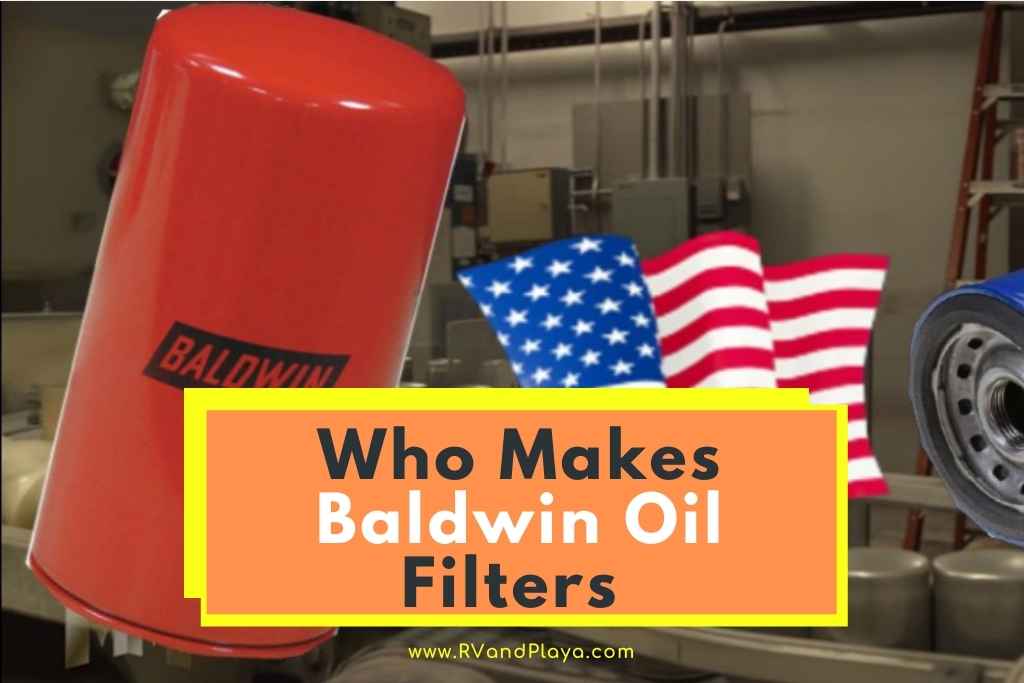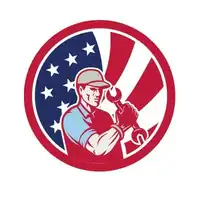People ask, who makes Baldwin oil filters?
An oil filter is a key component in your car that helps to keep your engine oil clean and free of nasty contaminants that can reduce its effectiveness.
Baldwin is a major supplier of engine oil filters. But there are many company names associated with Baldwin Filter’s corporate history, including Parker Hannifin, Clarcor, and Hastings.
So, who makes Baldwin oil filters? Baldwin oil filters are made by a brand of Parker Engine Mobile Aftermarket Division (EMAM). However, Baldwin Filters has plants in various parts of the world, and in the US, with its subsidiary Hastings Premium Filters, it has three plants at Kearney and Gothenburg in Nebraska, and Yankton, South Dakota.
In this article, I provide a short description of engine oil filters and how they work, provide an overview of the Baldwin Filters company, and uncover who actually manufactures Baldwin filters.
Table of Contents
What Is An Oil Filter?
The oil filter keeps your car engine oil clean by removing impurities and contaminants that tend to build up over time as the oil does its job keeping your engine clean.
The importance of clean engine oil cannot be underestimated. Over time small, hard particles of dirt, metal and carbon become gradually incorporated into your engine oil.
These particles can wear down and damage the working surfaces of your car engine.
How Do Oil Filters Work?
An oil filter is essentially a metal can containing a synthetic fiber filter. The base plate of the filter is perforated with holes through which the car engine’s oil pump pushes the oil, under pressure, into the filter. Dirty oil is passed through the synthetic filter, where it is cleaned, and sent back out through a central hole into the car engine’s moving parts.
How Often Should I Change The Oil Filter?
The opinion is divided on whether you should change the oil filter every time you change your oil, or every other time.
However, if you consider that the oil filter is your best defense against engine contamination and damage, it’s best practice to replace the filter every time you have an oil change.
However, this decision will, to some extent, be determined by your driving style and driving habits.
If you regularly drive in heavy traffic or extreme temperatures, it’s best to change the oil filter more often as the engine has to work harder in these tougher conditions.
Make Sure You Choose The Right Oil Filter
It is important that you choose the correct oil filter for your car. Not all oil filters are the same. It’s best to consult your car’s owner’s manual to find the correct oil filter type for your car.
If you use the incorrect filter you may suffer from oil leakage and subsequent engine damage.
Read also: Who Makes Amsoil Oil Filters (The Truth!)
Brief History of Baldwin Filters
Baldwin Filters has its origin in 1936 when J.A. Baldwin recognized the importance of oil filtration to various growing industries. He designed a new oil filter and began production in Wisconsin.
By 1953, he had moved production and built a new higher-capacity production facility at a former World War II Air Base at Kearney, Nebraska.
From 1963 to 1981 Baldwin Filters grew rapidly and the Kearney plant had to be expanded numerous times to accommodate the growing demand for engine oil filters.
In 1981 Baldwin Filters was bought by the J.L. Clark Manufacturing Company, later known as Clarcor.
After joining Clarcor, Baldwin Filters continued to grow in Nebraska, and additional facilities were opened in the US and elsewhere in the world:
- 1989 – Baldwin Filters Ltd, UK and Baldwin Filters NV, Europe
- 1991 – Gothenburg, Nebraska, and Baldwin Australia
- 1994 – Mexico
- 1995 – Weifang, China
- 1995 – purchase of Hastings Premium Filters, which included the addition of a third US manufacturing site, in Yankton, South Dakota.
- 1996 – Baldwin Filters South Africa
- 2007 – Baldwin Filters at Casablanca, Morocco
The 1995 purchase of Hastings Premium Filters facilitated Baldwin’s expansion into the automotive filtration market and added a third manufacturing site in the United States.
The addition of Hastings to the Baldwin family means that the majority of Baldwin’s automotive oil filters for the US market are manufactured in the United States.
In 2017, Clarcor became part of the Parker Hannifin Corporation Filtration Group in a $4.3billion sale making Clarcor a wholly-owned subsidiary of Parker Hannifin which is headquartered in Cleveland.
Baldwin Filters is now a brand within Parker Hannifin’s Engine Mobile Aftermarket Division (EMAM).
The 2017 Parker Hannifin takeover deal marked the second time Baldwin Filters has changed hands. The filter manufacturer’s founder, J.A. Baldwin originally sold the company to Clarcor back in 1981.
Read also: Who Makes NAPA Oil Filters (The Truth!)
Parker Hannifin
Parker Hannifin is one of the top motion and control technology companies in the world and a Fortune 250 company.
With over 100 years of history, the company has gained success in a range of industrial and aerospace markets, including:
- Electromechanical
- Hydraulic and pneumatic
- Fluid and gas handling
- Filtration
- Engineered materials
- Climate control
- Process control
- Aerospace
Parker Hannifin operates in 45 countries and employs more than 50,000 people around the world.
In 2021, Parker Hannifin had sales of more than $14 billion.
Baldwin Filters
Baldwin Filters offers a wide range of oil, air, fuel, hydraulic, coolant, and transmission filters for the following industries:
- Trucking
- Construction
- Mining
- Agriculture
- Marine
- Mobile power
Hastings Premium Filters
Hastings Premium Filters has a long history of making oil filters going back over sixty years. Hastings’ product line has over 450 oil filters for both heavy-duty and automotive applications, including cars and other passenger vehicles, commercial vehicles, off-road construction, mining & logging equipment, and industrial, agricultural, and marine applications.
It was the purchase of Hastings Premium Filters by Baldwin Filters that brought about the Baldwin Filters’ expansion into the automotive filtration market.
Conclusion
In addition to its US plants, Baldwin Filters has production and distribution centers in various places across the world, including Mexico, the UK, Belgium, China, Morocco, Australia, and South Africa.
In the US, with its subsidiary Hastings Premium Filters, Baldwin Filters has three main plants at Kearney and Gothenburg in Nebraska, and Yankton, South Dakota.
Baldwin and Hastings are closely intertwined and share office and production space. Baldwin tends to target the industrial/farming market more, whereas Hastings concentrates on automotive, although they do have some market overlaps.
Here are some of my favorite tools & equipment´s
Thank you for reading this article. I hope it helps you find the most recent and accurate technical and repair information for your car. Here are some tools that I use as an automotive technician and hope you´ll also find helpful.
There are affiliate links, so if you do decide to use any of them, I´ll earn a small commission. But in all honesty, these are the exact tools that I use and recommend to everyone, even my own family. (NO CRAP)
To see all my of most up-to-date recommendations, check out this resource that I made for you!
References
https://www.baldwinfilters.com/us/en/about-baldwin.html
https://www.parker.com/portal/site/
Recent Posts
Who Makes Fram Oil Filters - Synthetic (Real FACTS To Consider)
Fram has been making automotive oil filters since 1932 and is a name that the American public recognizes and continues to support. The Fram company recently changed hands again when Trico bought them...
Have you ever wondered who makes Purolator oil filters? Look no more. We´ve got you covered. Purolator is a brand that has held its reputation since the 1920s despite several changes of...


